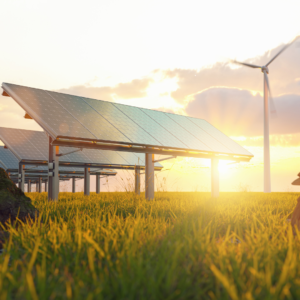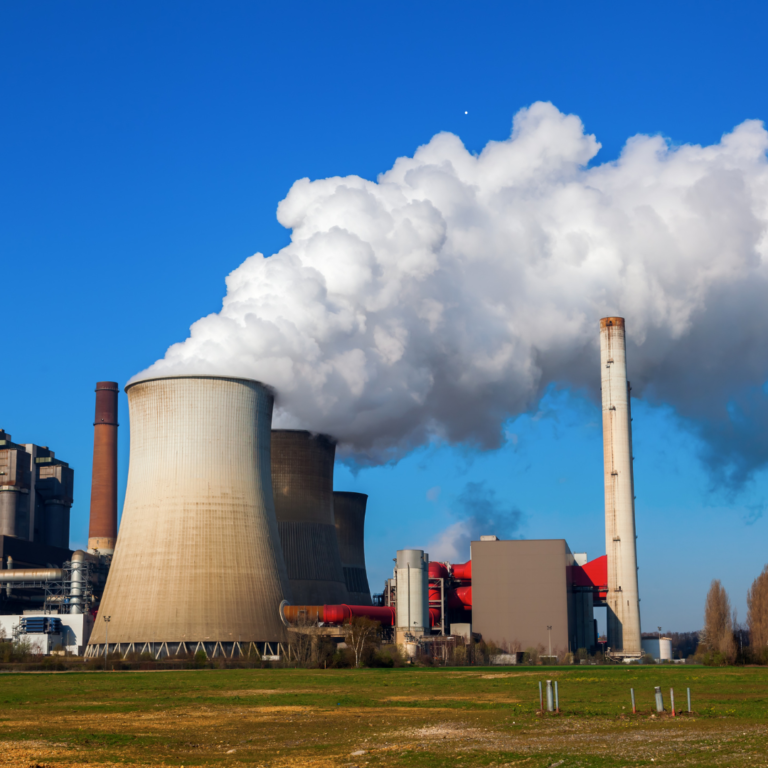As the world grapples with the escalating consequences of climate change and environmental degradation, renewable energy emerges as a beacon of hope. Harnessing the power of the sun, wind, and water, renewable energy technologies offer a sustainable alternative to fossil fuels, capable of significantly reducing our carbon footprint and paving the way for a cleaner, healthier planet. Imagine a world where our energy sources are limitless and pollution-free. This vision isn’t just a distant dream, it’s an attainable reality if we commit to embracing renewable energy today.
The Promise of Renewable Energy
Renewable energy sources, such as solar, wind, hydroelectric, and geothermal, provide an endless supply of power that does not deplete over time. Unlike fossil fuels, which release harmful greenhouse gases (GHGs) like carbon dioxide (CO2) when burned, renewable energy technologies produce little to no emissions during operation. This is crucial for combating climate change, as GHGs are the primary drivers of global warming, leading to rising temperatures, extreme weather events, and disrupted ecosystems.

Solar power, for instance, captures the sun’s energy through photovoltaic cells and converts it into electricity. It’s a technology that can be deployed on rooftops, in vast solar farms, or even integrated into building materials. Wind energy harnesses the kinetic energy of moving air, turning turbines to generate electricity. Offshore and onshore wind farms are increasingly becoming a staple in the energy mix of many countries. Hydroelectric power, which uses the flow of water to generate electricity, has been a reliable energy source for decades, and advancements in technology continue to increase its efficiency and minimise its environmental impact.
The Environmental and Health Benefits

The environmental benefits of renewable energy are profound. By replacing fossil fuels, we can drastically cut down on air and water pollution. Fossil fuel combustion releases a host of pollutants, including sulphur dioxide, nitrogen oxides, and particulate matter, which contribute to respiratory diseases, heart conditions, and other serious health issues.
The World Health Organization estimates that air pollution causes approximately 7 million premature deaths annually.
By transitioning to renewable energy, we can improve air quality and public health, reducing the incidence of pollution-related illnesses.
Moreover, renewable energy projects often have a smaller ecological footprint compared to fossil fuel extraction and burning. They do not require mining or drilling, processes that can devastate ecosystems, contaminate water sources, and destroy habitats. This makes renewable energy not only a cleaner option but also a more sustainable one, preserving biodiversity and the integrity of natural landscapes.
Economic and Social Impacts
Renewable energy also promises significant economic and social benefits.
The renewable energy sector is a major driver of job creation, offering opportunities in manufacturing, installation, maintenance, and research and development.
As the industry grows, it supports local economies and fosters innovation, driving technological advancements that can reduce costs and increase efficiency.

Moreover, the decentralisation of energy production through rooftop solar panels, for instance can empower communities, reducing energy costs and increasing resilience against price volatility and supply disruptions
Investing in renewable energy infrastructure also enhances energy security. Countries that rely heavily on imported fossil fuels are vulnerable to geopolitical tensions and market fluctuations. Renewable energy, often sourced locally, reduces this dependency and strengthens national energy security. Additionally, as technology advances and economies of scale are realized, the costs of renewable energy continue to fall, making it an increasingly competitive and attractive option for energy generation.
A Call to Action: Embracing the Future

The transition to renewable energy is not just an environmental imperative; it’s a moral one. Future generations depend on our actions today. By investing in renewable energy, we can build a sustainable legacy that ensures a liveable planet for our children and grandchildren.
Governments, businesses, and individuals all have a role to play in this transition. Policymakers must implement supportive policies and incentives, businesses should prioritize sustainable practices, and individuals can advocate for clean energy and make eco-friendly choices in their daily lives.
In conclusion, renewable energy offers a path to a healthier, cleaner, and more sustainable future. It is our beacon of hope in the fight against climate change and environmental degradation. By harnessing the limitless power of the sun, wind, and water, we can create a world where energy is abundant, affordable, and free of pollution. The time to act is now, and together, we can make this vision a reality. Let’s take bold steps today to ensure a sustainable tomorrow.





